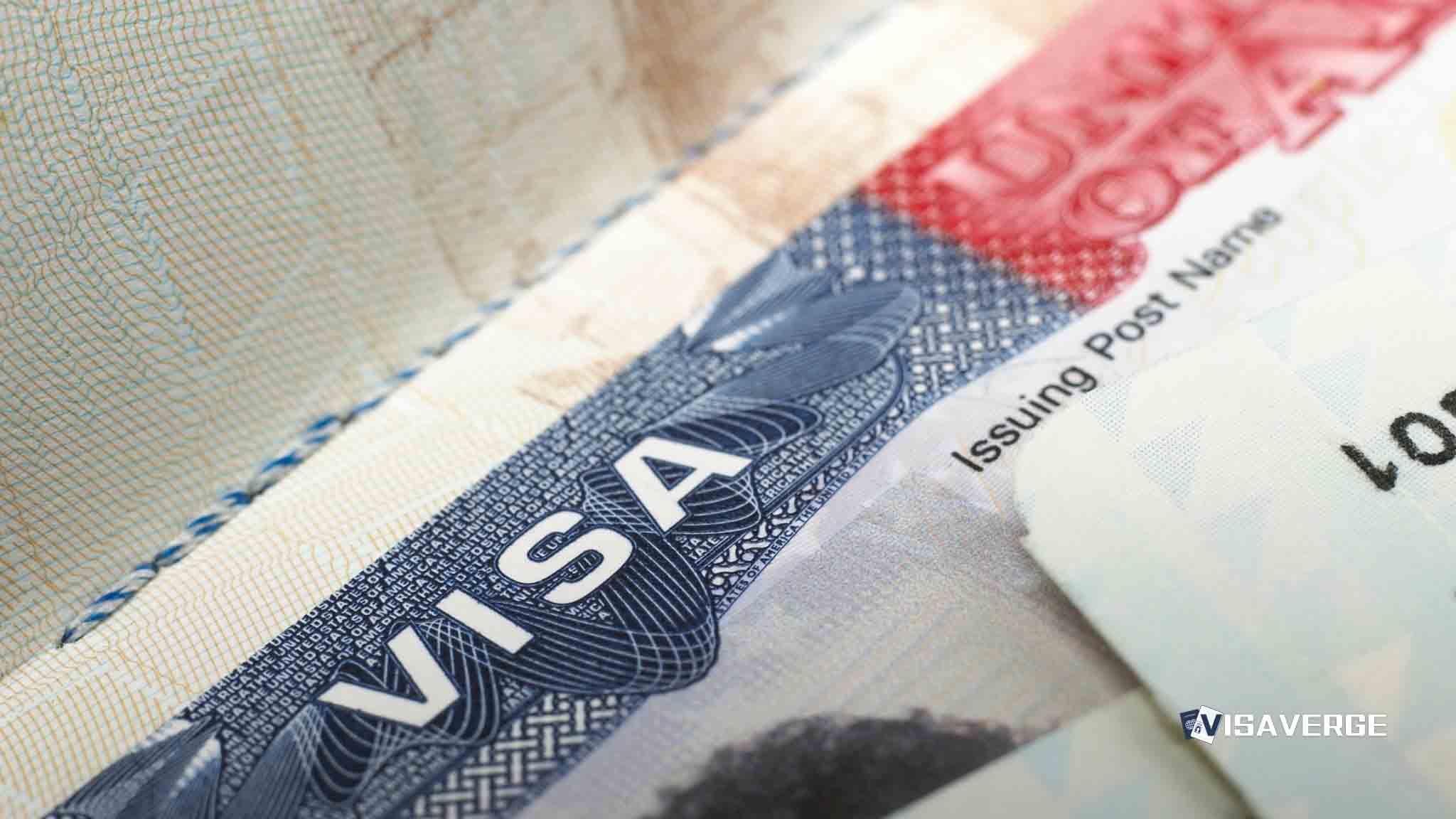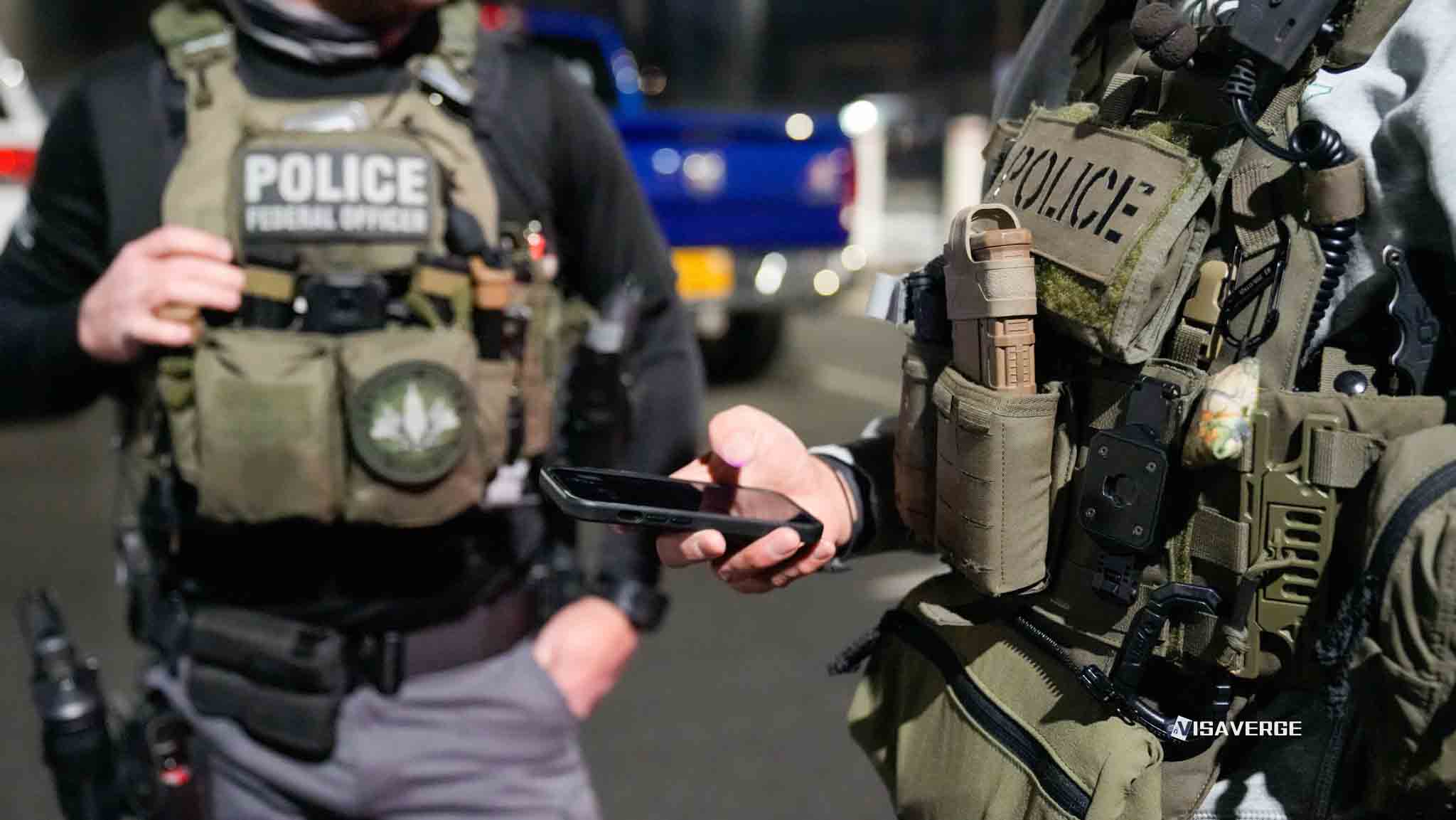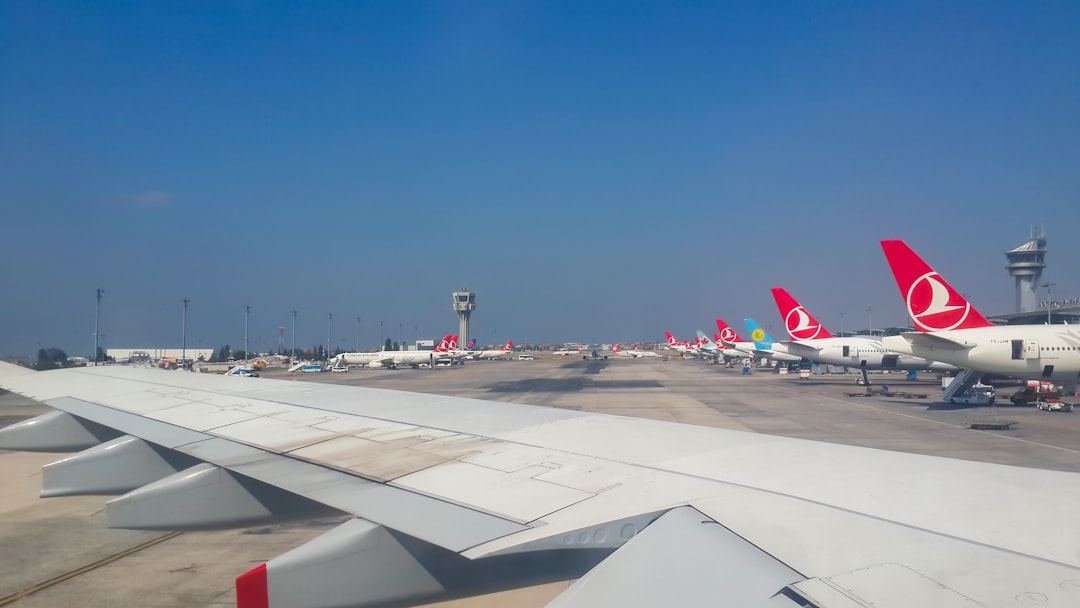Key Takeaways
• Kilmar Abrego Garcia was deported to El Salvador in March 2025 despite a 2019 court order protecting him.
• The U.S. Supreme Court ruled the deportation illegal on April 10, 2025, ordering his return to the U.S.
• Abrego Garcia faces federal smuggling charges after returning on June 6, 2025; pretrial hearing set for June 13.
The case of Kilmar Abrego Garcia, a Salvadoran immigrant who was deported from Maryland to El Salvador in March 2025 despite a court order protecting him, has become a flashpoint in the ongoing debate over the Trump administration’s “Grant and Deport” policy. His story highlights the risks, legal battles, and human costs that can arise when immigration enforcement policies collide with judicial protections. As of June 6, 2025, Abrego Garcia was returned to the United States 🇺🇸 to face federal charges, but the controversy surrounding his case continues to raise important questions about due process, government accountability, and the future of immigration enforcement.
Who Is Kilmar Abrego Garcia and What Happened?

Kilmar Abrego Garcia entered the United States 🇺🇸 in 2011 at the age of 16, fleeing gang threats in El Salvador. He settled in Maryland, started a family, and built a life. In 2019, an immigration judge granted him “withholding of removal,” a form of legal protection that allows someone to stay and work in the United States 🇺🇸 if they can show a credible fear of persecution in their home country. This protection is not the same as asylum, but it bars deportation to the country where the person faces danger.
Despite this court-ordered protection, on March 15, 2025, U.S. Immigration and Customs Enforcement (ICE) officers detained Abrego Garcia in Maryland. They told him his status had changed and deported him to El Salvador, where he was immediately incarcerated at the CECOT mega-prison—a facility known for harsh conditions and used to detain alleged gang members.
This deportation violated a 2019 immigration court order and set off a legal and political firestorm. Federal judges, including Judge Paula Xinis of the U.S. District Court in Maryland, condemned the deportation as “wholly lawless” and “shocks the conscience.” She emphasized that there was no evidence Abrego Garcia was a gang member and criticized the government’s disregard for court orders.
The Legal Battle: Supreme Court Intervention
After Abrego Garcia’s deportation, his attorneys, Simon Sandoval-Moshenberg and Andrew Rossman, filed urgent appeals. They argued that the Trump administration had violated due process and ignored a binding court order. The case quickly escalated, drawing national attention and sparking public debate.
On April 10, 2025, the Supreme Court of the United States 🇺🇸 unanimously ruled that Abrego Garcia’s removal was illegal. The Court ordered the government to facilitate his return, making clear that executive agencies must respect judicial decisions. This ruling was a rare and strong rebuke of the administration’s actions.
Despite the Supreme Court’s order, the process of returning Abrego Garcia to the United States 🇺🇸 was slow and complicated. The Salvadoran government, after being presented with an arrest warrant, cooperated with U.S. authorities to release him from CECOT and arrange his return.
Return to the United States and New Charges
On June 6, 2025, Kilmar Abrego Garcia was flown back to the United States 🇺🇸 and appeared in federal court in Tennessee. He now faces federal charges of conspiracy to transport and unlawfully transporting undocumented migrants. The indictment alleges that his smuggling ring moved thousands of migrants between 2016 and 2025.
The Justice Department is seeking to hold Abrego Garcia without bail, arguing that he is a danger to the community and a flight risk. A hearing on his pretrial detention is scheduled for June 13, 2025.
Attorney General Pam Bondi announced Abrego Garcia’s return and stressed the administration’s commitment to prosecuting him. She described him as a threat to public safety, repeating allegations of gang involvement—allegations that courts have found unproven.
The “Grant and Deport” Policy: What Is It?
The Trump administration’s “Grant and Deport” policy has come under intense scrutiny in light of this case. Under this approach, the government grants certain immigrants limited legal status, such as withholding of removal, but then seeks to deport them anyway. This is often done by reclassifying them as security threats or gang members, sometimes without strong evidence or judicial review.
Critics say this policy allows the government to sidestep legal protections and court orders, putting people at risk of wrongful deportation—even when they have been found to face real danger in their home countries. Supporters of the policy argue it is necessary for public safety, especially in cases involving alleged criminal activity.
Key features of the “Grant and Deport” policy include:
- Reclassification: Immigrants with partial legal status can be labeled as security threats, making them eligible for deportation despite court protections.
- Bypassing Judicial Review: Deportations can proceed even when there are ongoing legal proceedings or court orders in place.
- Deportation to Third Countries: The United States 🇺🇸 has agreements with countries like El Salvador to accept deportees, sometimes sending them directly to high-security prisons like CECOT.
As reported by VisaVerge.com, legal experts warn that this policy undermines judicial authority and due process, setting a dangerous precedent for future immigration enforcement.
The Human Cost: Family Separation and Trauma
The impact of these policies is not just legal—it is deeply personal. When Kilmar Abrego Garcia was deported, his wife and children, all U.S. citizens, were left behind in Maryland. They faced months of uncertainty, fear, and separation while he was detained in harsh conditions in El Salvador.
Immigrant rights advocates point out that family separation can cause lasting trauma, especially for children. The risk of violence or mistreatment in foreign prisons adds to the suffering. In Abrego Garcia’s case, his family’s ordeal has become a symbol of the broader human cost of aggressive immigration enforcement.
Stakeholder Perspectives
The Abrego Garcia case has drawn responses from a wide range of stakeholders, each with their own concerns and priorities:
- Trump Administration: Defends the deportation as a public safety measure, even when legal status has been granted. Officials like Attorney General Pam Bondi and Secretary of Homeland Security Kristi Noem argue that the policy is necessary to combat gang activity and protect communities.
- Federal Judges: Strongly condemn the government’s disregard for court orders and due process. Judge Paula Xinis called the deportation “wholly lawless” and warned that unchecked executive power threatens constitutional protections.
- Immigrant Rights Attorneys: Argue for strict adherence to legal protections and demand accountability for violations. They warn that the “Grant and Deport” policy could lead to more cases like Abrego Garcia’s if not checked.
- Salvadoran Government: Cooperates with U.S. authorities on deportations but faces criticism for the conditions at CECOT and the treatment of deportees.
- Families of Deportees: Suffer separation, trauma, and fear for their loved ones’ safety.
Timeline of Key Events
To better understand the complexity of this case, here is a timeline of major developments:
- 2011: Kilmar Abrego Garcia enters the United States 🇺🇸 at age 16, fleeing gang threats in El Salvador.
- 2019: Granted withholding of removal by an immigration judge, allowing him to stay and work in the United States 🇺🇸.
- March 15, 2025: Detained by ICE in Maryland and deported to El Salvador, despite a court order.
- March–April 2025: Held at CECOT mega-prison in El Salvador.
- April 10, 2025: Supreme Court rules the deportation was illegal and orders his return.
- June 6, 2025: Returned to the United States 🇺🇸, appears in federal court in Tennessee.
- June 13, 2025: Scheduled hearing on pretrial detention.
Policy Implications and Future Risks
The Kilmar Abrego Garcia case is not an isolated incident. Legal scholars and immigrant rights groups warn that the Trump administration’s approach could lead to more wrongful deportations, especially for immigrants with partial legal status or pending court cases.
Key risks include:
- Erosion of Judicial Authority: If executive agencies can ignore court orders, the balance of power between branches of government is threatened.
- Due Process Violations: Immigrants may be deported without a fair hearing or chance to challenge the government’s claims.
- Family Separation: More families could be split apart, with lasting emotional and psychological harm.
- International Human Rights Concerns: Deporting people to countries where they face danger, or to harsh prison conditions, raises serious ethical and legal questions.
Advocates are calling for stronger oversight, clearer rules, and greater accountability to prevent similar cases in the future.
Ongoing Litigation and Accountability
Abrego Garcia’s attorneys are not stopping with his return. They continue to pursue legal action to hold the government accountable for violating court orders. They argue that the case is not over until those responsible for the illegal deportation face consequences.
This ongoing litigation could lead to further court rulings or even policy changes. It also keeps the spotlight on the need for strict adherence to legal protections and respect for judicial authority.
What Happens Next?
Several important developments are expected in the coming weeks and months:
- Pretrial Detention Hearing: On June 13, 2025, a judge will decide whether Abrego Garcia should remain in custody while awaiting trial.
- Criminal Trial: He faces serious federal charges related to human smuggling. The outcome of his trial will have major consequences for him and his family.
- Policy Debate: The case is likely to fuel further debate and legal challenges over the Trump administration’s “Grant and Deport” policy.
- Potential for More Cases: Unless there are changes, experts warn that similar wrongful deportations could happen to others with partial legal protections.
Practical Guidance for Immigrants and Families
For immigrants and their families, the Abrego Garcia case offers several important lessons:
- Know Your Rights: If you have been granted withholding of removal or another form of legal protection, keep copies of all court orders and legal documents.
- Stay in Contact with Your Attorney: Legal representation is critical, especially if you are facing detention or deportation.
- Monitor Policy Changes: Immigration policies can change quickly. Stay informed through official sources like the U.S. Department of Justice and trusted advocacy groups.
- Seek Support: Organizations like the American Civil Liberties Union (ACLU) and the National Immigrant Justice Center can provide information and assistance.
Official Resources
For those seeking more information or needing help, here are some key resources:
- U.S. Immigration and Customs Enforcement (ICE)
- U.S. Supreme Court (see case No. 24A949, Noem v. Abrego Garcia)
- Legal representation: Simon Sandoval-Moshenberg, Andrew Rossman (contact via public court filings)
- Advocacy groups: American Civil Liberties Union (ACLU), National Immigrant Justice Center
Conclusion: A Case That Could Shape the Future
The story of Kilmar Abrego Garcia is about more than one man’s struggle. It is a test of the United States 🇺🇸 immigration system, the power of the courts, and the meaning of due process. The outcome of his case—and the broader debate over the Trump administration’s “Grant and Deport” policy—will likely shape how the country treats immigrants with legal protections for years to come.
As the legal process continues, all eyes will be on the courts, the administration, and the families affected by these policies. The stakes are high, not just for Kilmar Abrego Garcia and his loved ones in Maryland, but for thousands of others who could face similar risks under current immigration enforcement practices.
For more detailed analysis and updates on this and other immigration cases, VisaVerge.com reports that ongoing litigation and policy debates will play a key role in determining the future of due process and legal protections for immigrants in the United States 🇺🇸.
Learn Today
Withholding of removal → Legal protection allowing stay in the U.S. if persecution fear is credible, barring deportation to danger zones.
ICE → U.S. Immigration and Customs Enforcement agency responsible for enforcing immigration laws and deportations.
Grant and Deport → Trump-era policy granting limited status then deporting immigrants by reclassifying security threats without strong evidence.
CECOT → A high-security prison in El Salvador used to detain deported migrants, often criticized for harsh conditions.
Due process → Legal requirement that the government must respect all legal rights owed to a person before depriving liberty.
This Article in a Nutshell
Kilmar Abrego Garcia’s wrongful deportation violates court orders, spotlighting flaws in Trump’s “Grant and Deport” policy. His June 2025 return and new charges fuel national debate over due process and immigrant rights.
— By VisaVerge.com













